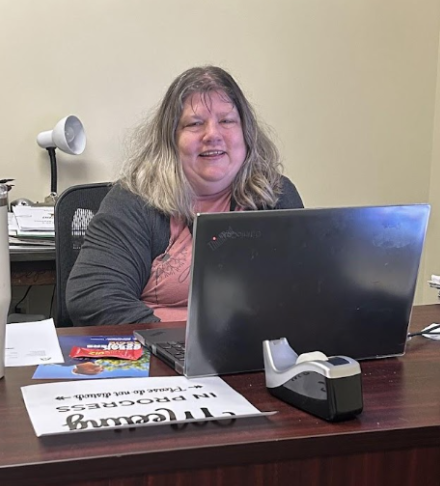Scholar-ships: Navigating the Sea of Paying For College
College is right around the corner and what better way to prepare than to apply for scholarships. By Thinkstock.
As the idea of having to make a college decision becomes more real, many seniors begin to ask themselves “How exactly am I going to pay for this?” The answer that most admissions counselors and staff members like to give is “with scholarships!” However, for the majority of the population that is not receiving a full merit or athletic scholarship, the process of applying to outside scholarships (scholarships that are not specific to one university) can be daunting. Most instruction can seem vague, and a lot of students feel the need to develop an “every man for himself” mindset, eliminating the most obvious choice of asking your friends for help.Combine the lack of information with the mind-numbing onset of “senioritis”, and you’ve got a recipe for students who don’t want to do anything or know where to start.
The best course of action is to start early. Of course, no one wants to hear that – because who wants to devote their down time during junior year to writing extra essays and doing research? If you’re like most of us and are exhausted after being hit with a slew of AP exams and SAT/ACT tests, do your future self a favor and go with the route that requires no essays – “testing the waters”. This is based solely on observation and a little brainpower. What have you spent most of high school doing? What colleges have you begun to consider? It sounds cliche, but there are a ton of scholarships for everything. Junior year is also the year of college tours, so check out the flyers and brochures handed out at information sessions. Many private colleges give out scholarships for things like tech theatre, acting, singing, or creative writing. If any of these things interest you, it may be worth applying to that specific school as a senior. Your GPA isn’t going to change much between your junior and senior year, so if your grades are within a certain range for a merit scholarship or an honors college listed on a campus brochure, keep the school in the back of your mind.
If you’re a senior and have no idea where to begin, what do your parents do? Colleges or universities usually offer discounted or free tuition for the children of faculty. Larger companies like South State Bank, Siemens, or Coca-Cola offer academic scholarships for the children of employees. Union County offers a good number of opportunities for county staff members, like the State Employee’s Credit Union Scholarship. If your parents don’t work for a large organization, do you have a part time job? Harris Teeter offers annual financial assistance to employees of up to $2,000 a year, and Chick-fil-A offers both financial assistance and employee scholarships. Think about what you do in your spare time. If you’ve been involved in an activity like JROTC, art, yearbook, dance, or if you play an instrument, ask your instructor about local scholarship opportunities and apply for them. If you have a passion for something, you might as well make any money you can off of it, right? A good mindset to have in regards to the scholarship application process in general is “Why not?’”
Another good rule of thumb is to get as ahead as you can during the summer before your senior year. Draft your Common App Essay, make a list of schools you are interested in for both financial and academic reasons, and knock out a bunch of those supplemental essays. Getting as much of this done as possible before the school year starts will give you more time to write essays for any high-stakes scholarships or rigorous schools you are interested in. Keep an eye on the senior class Instagram (@weddingtonclassof2020), because Mrs. Washington posts a lot of updates about local scholarship opportunities. Stay on top of deadlines. If you have a free weekend, set aside one or both days and get multiple scholarship essays done. If you apply to a lot of scholarships and find that the prompts are similar, feel free to “recycle” any past supplemental or scholarship essays (as long as they aren’t for the same school or organization). You can always change a few things about an existing essay to make sure that it corresponds with another prompt.
Ask for your letters of recommendation in person, and at least a month in advance. Teachers are slammed with Common App recommendation requests at the beginning of the school year, so depending on the scholarship’s due date it may be less overwhelming if you ask about scholarship recommendations in the December to February time frame. Hand-write thank-you notes to every teacher or adult that takes time to write you a recommendation, this makes you seem more genuine and professional. Another thing to add to your bag of tricks is a student resume. This should be less than two pages and should list any honors or awards you have received, extracurriculars you’ve participated in, and any part-time jobs you’ve had. Ask someone in Guidance to email you a PDF of your transcript and download it onto your computer for safe-keeping. This way, you can present a recommender with some reference materials to use when writing a letter and you will have a resume or transcript ready to go if a scholarship application requires it. Keep a list of teachers or adults that write your recommendations for specific colleges or scholarships. This can help you avoid asking the same person repeatedly. Many large UNC school scholarship nominations begin at the start of the school year, and local scholarships begin to pop up around the middle of January. However, it is best to start looking around for or researching scholarships at the beginning of senior year (or even before that). Writing a list or keeping a calendar of due dates can help you to stay organized.
Arguably the most important thing to remember when embarking upon this scholarship application journey is that you cannot expect to get something for nothing. Everyone wants money to pay for college, but a lot of students completely write off scholarships that require essays or any type of time commitment because they are not willing to put in any effort. The best way to get any scholarship money is to put your eggs in as many baskets as possible. Don’t apply to just one, and don’t wait until the last minute, either. Scholarships are work. Focus on writing solid essays that answer the prompt. Read all of the instructions and triple check everything before you submit it. Just like it will be in college, there is no hand-holding when it comes to scholarship applications. Adults will not do this for you, and it’s likely that your parents got tired of asking about deadlines after you applied to colleges. What you put into the scholarship application process is what you will get out of it. Take advantage of local scholarships because they are available to less people. A national scholarship that is offered to all seniors in the US is going to be much more difficult to win than your local women’s club scholarship. Know and understand your strengths. If you are an artist, consider local art awards or shows, and if you are into film and editing, the Union County Education Foundation scholarship requires students to make a short video. The more time you put into these applications and the more scholarships you apply to, the better your results will be.








